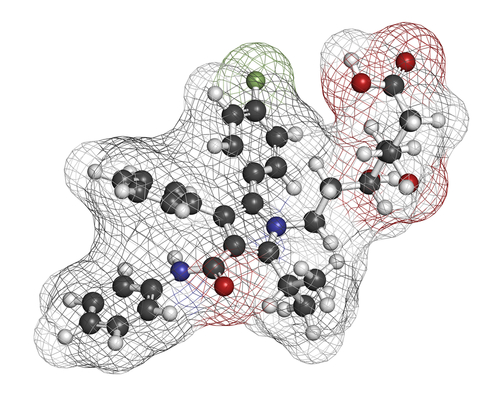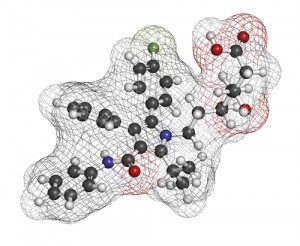Atorvastatin Reduces Pulmonary Fibrosis Symptoms in Rats

 Scientists in Iran have found that the lipid-lowering agent atorvastatin may reduce pulmonary injury and fibrosis caused by paraquat–a poison that is toxic to the nervous system. The article was published in the December issue of Advanced Pharmaceutical Bulletin.
Scientists in Iran have found that the lipid-lowering agent atorvastatin may reduce pulmonary injury and fibrosis caused by paraquat–a poison that is toxic to the nervous system. The article was published in the December issue of Advanced Pharmaceutical Bulletin.
Pulmonary fibrosis is characterized by thick, scarred lung tissue, causing difficulty with breathing. There is no cure, and life expectancy is only three to five years post diagnosis. No effective medication exists for pulmonary fibrosis and lung transplantation is the only available treatment.
Giving paraquat to rats creates an experimental form of pulmonary fibrosis, since this chemical — used in the past as a weed killer — causes damage to the lungs. The scientists, led by Dr. Mohammad Javad Khodayar of the School of Pharmacy, Ahvaz Jundishapur University of Medical Sciences, found that both pre-treatment and treatment with atorvastatin after exposing the rats to paraquat helped with symptoms of pulmonary fibrosis. Specifically, inflammatory cell responses were reduced, as well as collagen content in lung tissue — a marker of fibrosis. Atorvastatin also seemed to act as an anti-oxidant, based on reductions in malondialdehyde, a molecule known to cause oxidative damage, that increased following the paraquat exposure. Oxidative damage and cellular inflammation cause cell death in pulmonary fibrosis as well as other diseases. The authors of this study noted “The existence of chronic inflammation in lung tissue ultimately leads to fibrosis.”
Atorvastatin is already an approved medication that is well-known to many people who have high cholesterol. It is commonly known by the brand name “Lipitor.” It reduces “bad” cholesterol (low-density lipoprotein, or LDL) and triglycerides, and increases “good” cholesterol (high-density lipoprotein, or HDL). In addition to the apparent effects in the rats of reducing markers for pulmonary fibrosis caused by paraquat toxicity, atorvastatin could be particularly helpful to people with pulmonary fibrosis, since the disease is characterized by excessive fat (lipids) within the lungs.
[adrotate group=”3″]
The researchers concluded that “…the present data show that atorvastatin alleviate the toxic effects of paraquat under the experimental circumstances and may be a useful agent in cases who are in contact or poisoned with paraquat.”
They further speculated in the report that atorvastatin could be used for pulmonary fibrosis in general, stating “The data suggest that atorvastatin is a highly promising agent in protecting early lung tissue damage induced by paraquat exposure or in the treatment of [pulmonary fibrosis].” However, first atorvastatin would need to be evaluated in other animal models of pulmonary fibrosis, and naturally the effects on lung health would need to be tested in humans.







